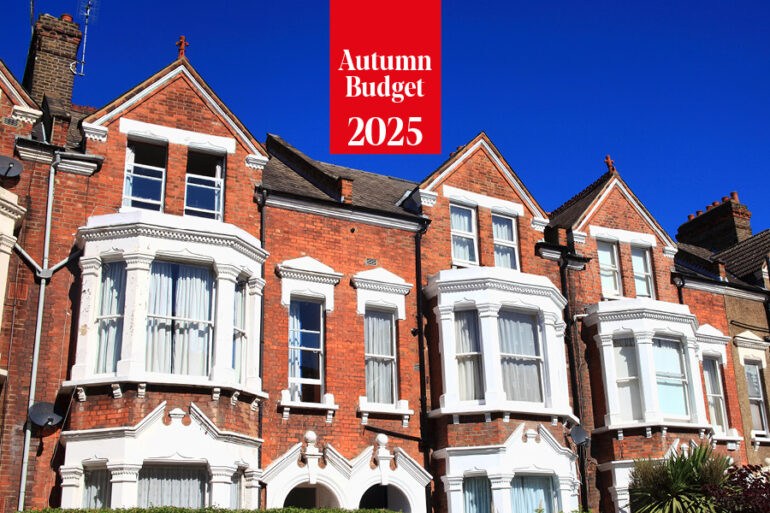Chancellor Rachel Reeves has delivered her Autumn Budget without making any changes to Stamp Duty Land Tax (SDLT), leaving the current system in place despite months of speculation and sustained pressure from the property industry.
The Budget contained no reference to Stamp Duty reform or any replacement model, bringing an end to pre-Budget expectations that the Chancellor might abolish or overhaul the up-front purchase tax paid on homes above £125,000 in England and Northern Ireland.
Treasury officials had been kite-flying potential changes since late summer, prompting repeated warnings from property analysts that the uncertainty was weighing on activity.
Industry figures had argued that Stamp Duty was a major barrier to mobility and had urged the Government to take action to reenergise a weakening housing market.
Rightmove and other market commentators said buyers were delaying decisions in the run-up to the Budget in case any reforms altered their financial position.
However, the Chancellor made no comment on Stamp Duty in her statement, and there was no accompanying policy detail in the supporting documents.
The decision means Stamp Duty will continue to raise around £11.6bn as recorded in 2023/24, though this was down from £15.4bn the previous year due to slower transaction volumes.
Reaction:
Kevin Mountford, personal finance expert and co-founder at Raisin UK:
“Leaving stamp duty thresholds unchanged will come as a relief to first-time buyers.
“With confidence in savings low according to the Great British Savings Report, avoiding higher upfront costs provides valuable stability.
“Savers should use this time to build deposit pots and secure competitive rates.”
Richard Sexton, commercial director of proptech surveyor portal Houzecheck:
“Rachel Reeves could have done us all a favour by reducing stamp duty rates for first-time buyers and all residential purchases below £500,000.
“Lowering a transaction tax like this would have decreased upfront costs for buyers and stimulate demand, especially among younger first-time buyers. Evidence from past cuts shows sales volumes increasing within months.
“She could have introduced a temporary stamp duty holiday for properties under £750,000 for the next 12 months.
“Historically these boost market activity – just look at the impact this had in 2020 when buyers rushed to complete deals before the due date and sellers list more properties. A cut in stamp duty would have signalled government support for brokers, conveyancers and agents. The new Mansion Tax signals precisely the opposite.”
Damien Jefferies, founder of Jefferies London:
“It is disappointing to see homebuyers ignored yet again. There was a real opportunity to lift market mobility with a Budget Day boost by way of Stamp Duty reform but, as we’ve seen time and time again, the government has turned its back on those struggling to climb the property ladder.
“Stamp duty remains one of the most obstructive elements of the entire housing system, slowing transactions at every level and adding unnecessary friction to the process of moving home. By leaving it untouched, the Chancellor has failed to address one of the most significant barriers facing buyers and sellers in what is already a cautious market.
“Our own analysis shows that buyers in England have paid more than £62 billion in stamp duty over the past decade, with London shouldering a disproportionately large share of that burden. The capital’s market has been fatigued for years, and reform to this outdated tax could have played a vital role in re energising activity and restoring confidence. Instead, the government has chosen not to take action, leaving households to contend with the same high upfront costs and the same constraints on mobility that have held the market back for far too long.”
Verona Frankish, CEO of Yopa:
“After months of anticipation, today’s Budget will bring nothing but frustration for the nation’s homebuyers, who were hoping to see some form of stamp duty reform, at the very least.
“Stamp duty is one of the most significant financial hurdles in the home buying process and the property market needs permanent reform in this respect, not continued inertia.
“The property market has stood strong over the course of the last year, but no news is certainly not good news in this instance and won’t light the touch paper with respect to driving buyer demand levels.”
Colby Short, CEO of GetAgent:
“From the conversations we are having every day with our partner agents, the appetite from buyers and sellers has remained consistent to a degree, but the market has been noticeably quieter in recent months, as is often the case in the lead up to big set piece moments like the Budget.
“Many households were waiting to see whether stamp duty would be addressed before committing to a move, but with no reform forthcoming, they are now left navigating the same high upfront costs that prove to be such a significant barrier to homeownership for so many.
“The absence of any stamp duty relief means we are unlikely to see the release of pent up demand that could have helped lift momentum going into 2026. With clarity at least restored, many will begin to move again, but without action on the upfront cost of moving, we should expect progress to be steady rather than swift.”




